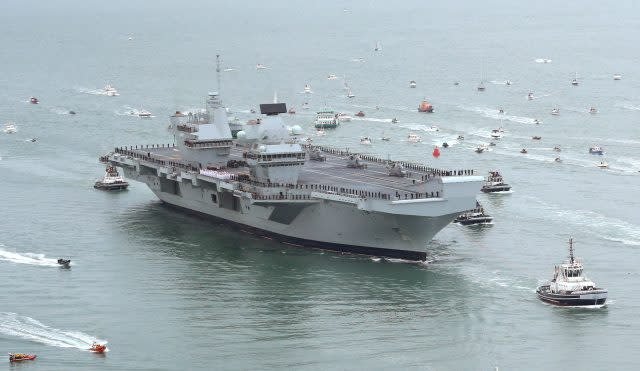UK must decide whether spending 'minimum' on defence is enough - US ambassador

The UK must decide if spending the "minimum" on defence is enough to continue to be a leading world power, the new US ambassador to Britain has said.
Woody Johnson said that while the UK meets the Nato target of spending 2% of GDP on defence, it is half that spent by the US.
Speaking to The Daily Telegraph, Mr Johnson suggested the Government may have to allocate a greater share of national wealth to defence in order for Britain to remain a major player on the world stage.
The @NATO#SGReport launched today lists the UK as one of five nations reaching the 2% spending target @UKNATOhttps://t.co/Ju9VLdxRhZ
-- Ministry of Defence (@DefenceHQ) March 13, 2017
"Whether you have the capability you need to be a powerful nation going forward, I think you are going to have to determine," the ambassador said.
"You are spending the minimum (2% of GDP) and you will have to decide whether it is enough.
"We spend at least twice that much and we could still spend more. And we probably should spend more as well."
Donald Trump has repeatedly complained that some Nato members do not meet the 2% mark and the US pays more than its fair share.
Great meeting w/ NATO Sec. Gen. We agreed on the importance of getting countries to pay their fair share & focus on the threat of terrorism. pic.twitter.com/e3ACOOOb0y
-- Donald J. Trump (@realDonaldTrump) April 12, 2017
The president appointed fellow billionaire Mr Johnson, a friend and long-time Republican Party fundraiser, as the US's representative at the Court of St James's.
An heir to the Johnson & Johnson family fortune and owner of the New York Jets American football team, Mr Johnson, 70, has no government experience.
However his comments on Britain's defence spending echo calls from a former Army chief for the budget to be increased.
The Royal Navy launched its largest ever warship, the aircraft carrier HMS Queen Elizabeth, in July and the Ministry of Defence (MoD) is building another, HMS Prince of Wales.

Defence Secretary Sir Michael Fallon has also announced plans to build five new Type 31e frigates as part of a new national shipbuilding strategy.
Lord Dannatt, who served as chief of the general staff from 2006 to 2009, warned building ships must not be at the expense of other parts of the country's armed forces.
Now a crossbench peer, he argued the Government should increase defence spending to 2.5% of GDP.


